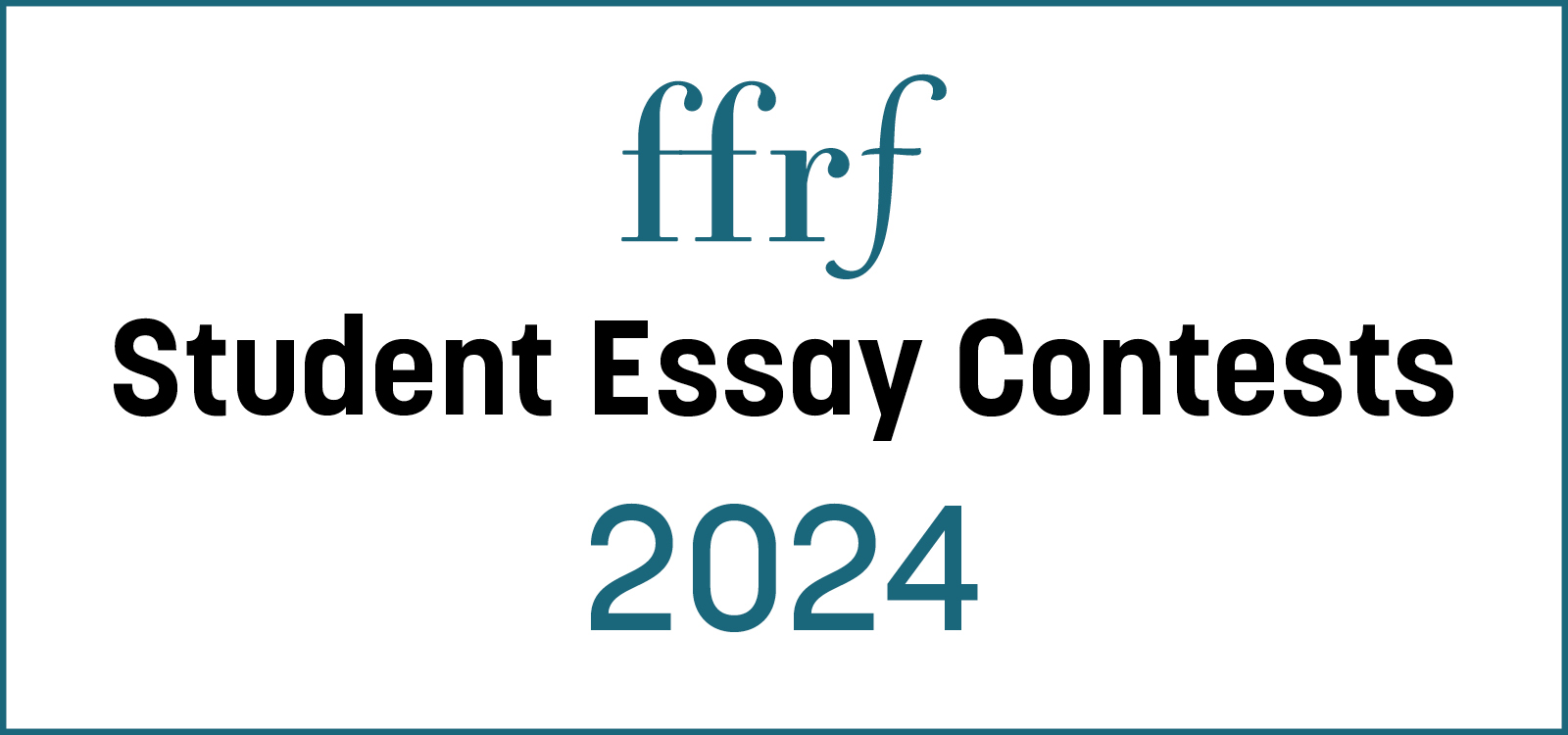The Freedom From Religion Foundation has announced its four 2024 essay competitions for freethinking students — offering more than $60,000 in total scholarships.
Each of the four contests offers 10 prizes: First place — $3,500; second place — $3,000; third place — $2,500; fourth place — $2,000; fifth place — $1,500; sixth place — $1,000; seventh place — $750; eighth place — $500; ninth place — $400; and 10th place — $300. FFRF also offers optional honorable mentions of $200.
The contests cater to students in different age/class ranges.
William J. Schulz Memorial Essay Contest for College-Bound High School Seniors
High school seniors graduating this spring and attending college in the fall are asked to write about: “How can ‘Nones’ transform America?” High numbers of Gen Z are atheists, agnostics or “nothing in particular” (religiously unaffiliated). How can young “Nones” help transform the United States with their secular values, such as by voting? Analyze surveys on the views and values of the “Nones” (as contrasted with religiously affiliated Americans) to make your case. Include your personal views as a “None” and why lack of religion is a positive attribute in your life. Word limit: 350–500 words. Deadline: June 1.
For further details and to enter, see application at: ffrf.us/highschoolessay24
Kenneth L. Proulx Memorial Essay Contest for Freethinking College Students
Currently enrolled college students (up to age 24) may write on: “Why is Gen Z the least religious generation?” Today’s youth are the least religious generation in U.S. history, according to many surveys — with the portion who are “Nones” (identifying as religious unaffiliated) ranging from about a third to more than half of Gen Zers. Many identify as atheists or agnostics. Explain why you’re a part of this cultural transformation that you’ve observed among your peers, and what you think is galvanizing so many young people to reject religion. Why is this a good development for individuals and for our nation? Word limit: 450–650. Deadline: June 1.
For further details and to enter, see application at: ffrf.us/collegeessay24
The David Hudak Memorial Contest for College Students of Color
Students of color ages 17–21 (college-bound high school seniors to currently enrolled college students) may write on the topic of: “How does religion hinder racial equality and civil rights?” Religion often gets the credit for civil rights achievements, but has it also hindered racial equality? You may write from the perspective of history or current struggles, religious psychology or personal experience. You may wish to write about whether secular individuals have furthered equality and civil rights but been overlooked. Include at least one example from your own experience about how religion or religious faith can hamper racial equality, self-acceptance and civil rights.
For further details and to enter, see application at: ffrf.us/BIPOCessay24
The other FFRF student contests are open to all students. Students may only enter one FFRF contest annually. Word limit: 350–500. Deadline: June 1.
Cornelius Vander Broek Essay Contest for Graduate/“Older” Students
Graduate students (through age 30) and “older” undergrads (ages 25–30) are asked to write on the topic: “How is Christian nationalism imperiling democracy?” More and more conservative public officials, candidates and preachers are insisting that the United States is a “Christian nation,” that certain Christian views are privileged and that our laws must reflect their doctrines. Which statements and legislative actions concern you the most or present the greatest threats to our secular democracy? How dangerous is Christian nationalism and how does it adversely affect you and the country? Use examples. Be sure to define Christian nationalism and explain why you oppose it.
Word limit: 550–750. Deadline: June 1.
For further details and to enter, see application at: ffrf.us/gradessay24
Students are required to submit their essay via the online application, and should carefully review all contest rules. All eligible entrants will receive a digital year-long student membership in FFRF.
FFRF is appreciative of FFRF members who make the effort to contact local high schools, colleges and universities to help publicize its competitions.


